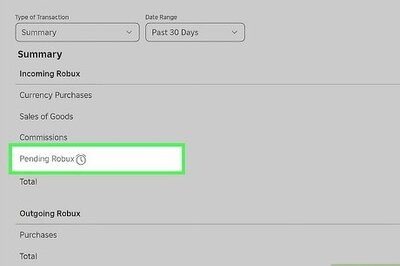
views
Shares of Apollo Tyres Limited surged over 7 per cent to Rs 508 in morning trade on May 16 despite the company reporting a muted set of numbers in the March 2024 quarter.
Apollo Tyres reported a 14 per cent fall in the net profit on a year-on-year (YoY) basis to Rs 354 crore for the March 2024 quarter, on account of higher expenses. Revenue from operations remained mostly flat to Rs 6,258 crore in the period under review. The company board recommended a dividend of Rs 6 per share for FY24, subject to the approval of the shareholders.
Apollo Tyres reported a lower profit for the fourth quarter on Tuesday, hurt by increased tax expenses, said market participants. Apollo Tyres is one of the major players in the sector, which has a turnover of $11 billion and manufactures tyres for Maruti Suzuki, Mahindra and Mahindra and TVS Motor Company among others.
Apollo Tyres, during an earnings call mentioned that it expects the performance of the European business to improve compared to last year.
The stock is up 12 per cent so far in 2024 and has gained close to 40 per cent in the last 12 months.
What Analysts Say?
Morgan Stanley has issued an equal-weight rating for Apollo Tyres with a target price of Rs 472 per share. The company’s focus on sustainable and profitable growth has enhanced its free cash flow (FCF) and return on capital employed (RoCE) profile. Currently, margins are at a cycle high, and Apollo Tyres is implementing price hikes to counter rising cost pressures. However, this could potentially slow revenue momentum.
Nomura has upgraded Apollo Tyres to a neutral rating with a target price of Rs 512 per share. Although the Q4 results were below estimates, the company’s focus on a favourable mix and price hikes is expected to support margins. Additionally, limited capital expenditure intensity is set to drive free cash flow (FCF). It also added that the stock does not appear expensive given the healthy FCF of the company.


















Comments
0 comment